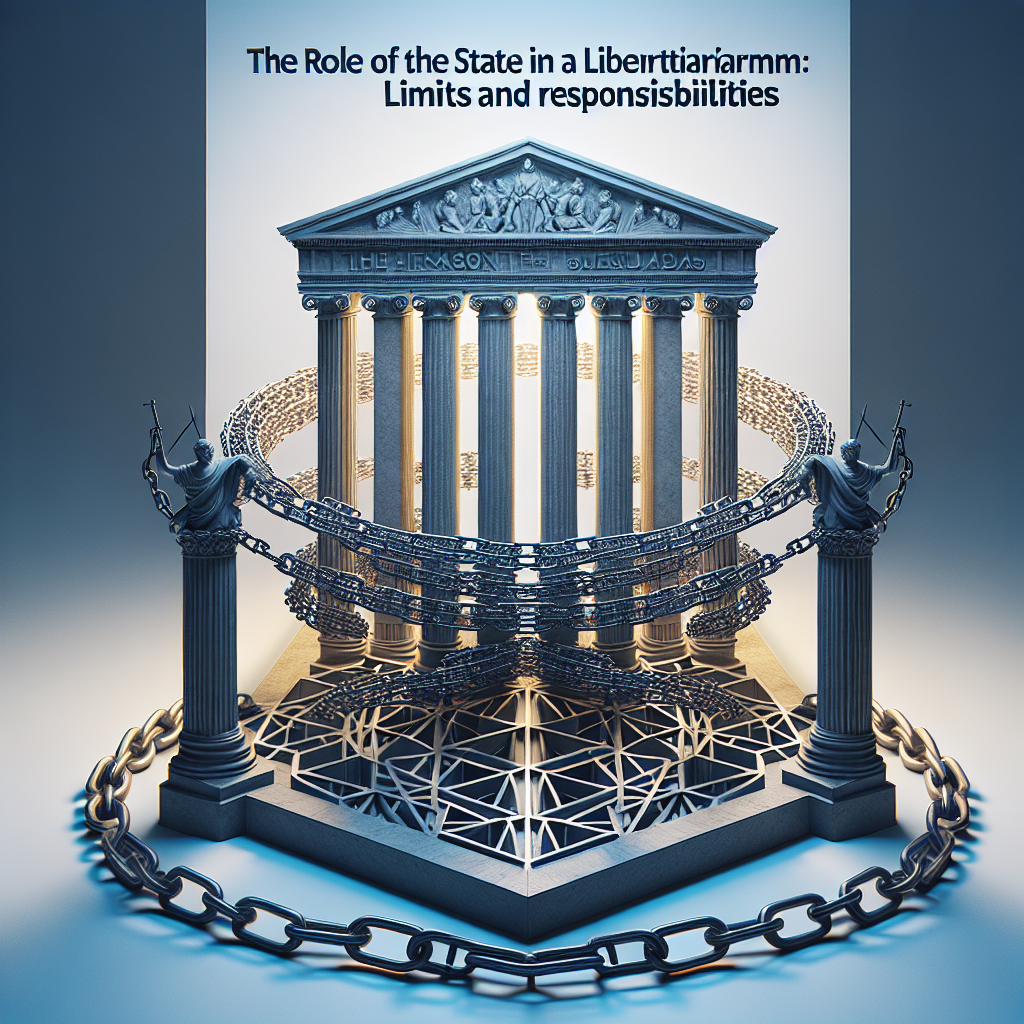The Role of the State in a Libertarian Framework: Limits and Responsibilities
In the rich landscape of political philosophy, libertarianism stands out for its emphasis on individual liberty, free markets, and minimal government intervention. While often perceived as an ideology that advocates for the complete dissolution of the state, a closer examination reveals that libertarianism recognizes a vital role for government, albeit with stringent limits and clear responsibilities. In this article, we will delve into the state’s role within a libertarian framework, exploring its functions, limits, and necessary responsibilities.
Understanding Libertarianism: A Brief Overview
Libertarianism is grounded in the principles of individual freedom and personal responsibility. This political philosophy champions the idea that individuals should have the autonomy to make choices about their lives, free from coercive forces, particularly those imposed by the government. The core tenet is that the state should exist primarily to protect liberty and property while refraining from intruding into the personal and economic affairs of its citizens.
The Limited Role of the State in Libertarian Thought
1. Protection of Individual Rights
At the heart of the libertarian perspective on governance is the necessity for the state to protect individual rights. This involves safeguarding citizens from violence, theft, and fraud. Libertarians argue that a legitimate government’s fundamental purpose is to maintain law and order, ensuring that individuals can pursue their own goals without fear of coercion or harm from others.
2. The Provision of Public Goods
While libertarians advocate for minimal government, they acknowledge that certain public goods—such as national defense, law enforcement, and judicial systems—are essential for a functioning society. These services may not be efficiently provided by private entities due to their nature as non-excludable and non-rivalrous goods. As a result, a libertarian state should focus on delivering these services effectively and efficiently, maintaining transparency and accountability in their operations.
3. Upholding Contracts and Private Property
A vital role of the state in a libertarian framework is to enforce contracts and protect property rights. The ability to enter into binding agreements and own property is foundational to a free market system, facilitating trade and innovation. Libertarians argue that the state must provide a legal framework that guarantees these rights, enabling individuals to pursue economic activities while minimizing disputes and conflicts.
Limits of State Power in Libertarianism
1. Non-Intervention in Personal Matters
One of the most significant limitations on state power in a libertarian framework is the strict non-interventionist stance regarding personal choices. Libertarians contend that the government should not dictate personal morality, lifestyle choices, or individual behavior as long as such actions do not infringe on the rights of others. This includes issues like drug use, marriage, and personal finance—areas where state involvement is seen as overreach.
2. Fiscal Restraint and Limited Taxation
Libertarians advocate for fiscal responsibility and argue against excessive taxation, viewing it as a form of coercion. They believe the state should operate on a limited budget, focused on its essential functions. By minimizing government spending and taxation, libertarians argue that resources can be allocated more efficiently by individuals in the market rather than by the state.
3. Decentralization of Power
Decentralization is a core principle in libertarian thought. The belief is that local governments are better suited to address the unique needs and preferences of their communities, thus empowering individuals via smaller, more responsive governing bodies. In this view, a vast, centralized government often leads to inefficiencies, bureaucracy, and a disconnect from the people it serves.
Responsibilities of the State: Ensuring Justice and Fairness
1. Justice and Law Enforcement
Despite the limited role of the state, it still bears significant responsibility in the realm of justice and law enforcement. A libertarian state must ensure that laws are applied fairly and consistently, maintaining an impartial justice system that protects individuals from criminal activity and ensures justice is served.
2. Addressing Market Failures
Libertarians recognize that even in a robust free market, market failures such as monopolies, externalities, and information asymmetries can occur. While the state’s role in addressing these failures should be minimal, it should implement the necessary regulations to prevent harm while avoiding excessive bureaucracy that stifles innovation and competition.
3. Promoting Voluntary Cooperation
A responsible state within a libertarian framework should facilitate voluntary cooperation between individuals and organizations, fostering an environment where non-coercive collaboration can flourish. This can include promoting educational initiatives, supporting community projects, and encouraging private charities, as long as such efforts do not infringe on individual liberties.
Conclusion: Striking a Balance Between Freedom and Order
In conclusion, the role of the state within a libertarian framework is defined by its limits and responsibilities. While advocating for minimal governmental intervention and personal freedom, libertarianism recognizes the essential functions that the state must perform to protect individual rights, uphold justice, and ensure social order. By striking a careful balance between freedom and governance, the libertarian perspective presents a vision of a society where individuals can thrive autonomously while enjoying security and support from a limited yet responsible state. This nuanced understanding challenges the common perception of libertarianism as purely anti-government, illustrating that even within a framework of minimal state power, there exists a profound commitment to justice, fairness, and individual rights.
Share this content:












Post Comment